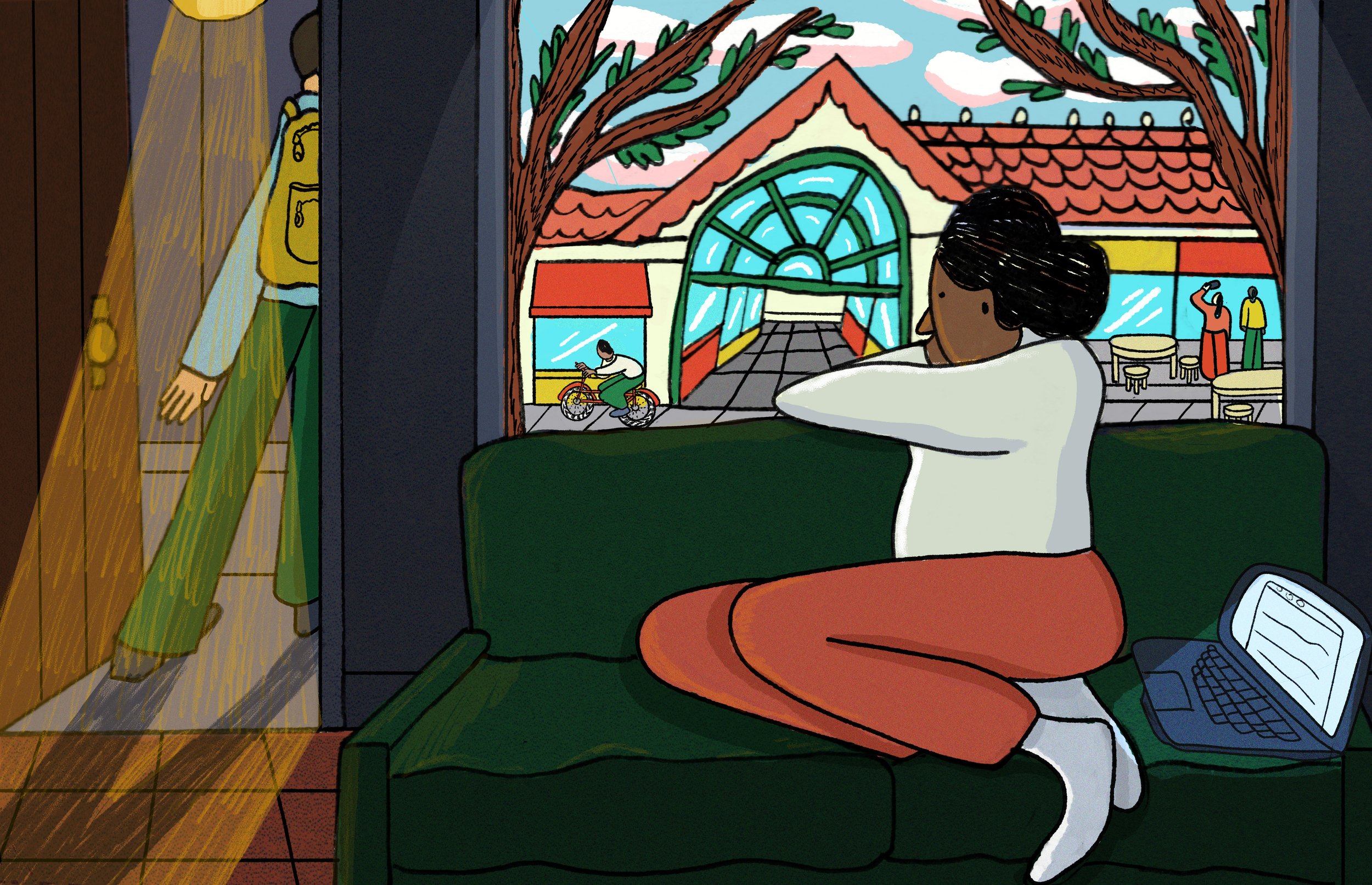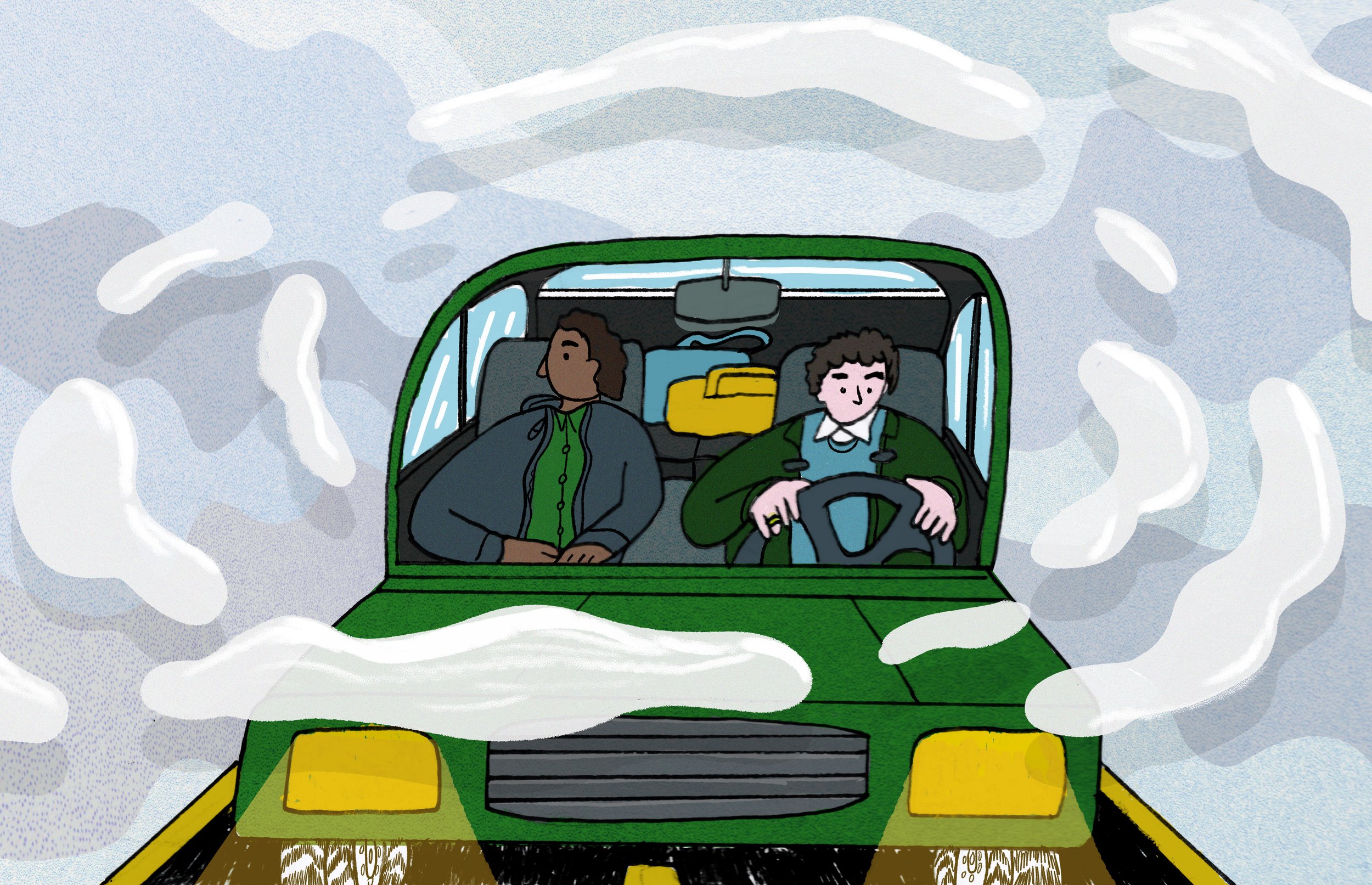6 p.m. in Tashkent

6 o’clock in Tashkent is when portals creak open.
It was July and the city was baking, a 105-degree Uzbek afternoon settling into its last stretch. My travel companions and I had bickered for the entirety of the dusty, dehydrated walk back from Khazrati Imom—a massive complex of tiles, arches, mosques, and madrassahs. Its magic melted almost immediately as we reentered the more modern part of the capital. Old Tashkent had been mostly destroyed by a 1966 earthquake, and I found the Soviet city erected in its place to be an imposing one.
The edges of the sky were beginning to darken, and the candle glow of sunset shimmered on our skin, already dewy again with sweat. We ambled down Shakhrisabz Street, past the towering Grand Mir hotel and the neon of the money transfer stores. Past the sidewalk cafés with elaborate hose systems that enshrouded diners in clouds of cool mist. Past the old men sitting in circles of small plastic chairs, each group holding a séance around a bottle of brandy.
Then, one of us saw it: the entrance to the dungeon.
Café Pottermania would have been easy to miss, but it was as though we had been beckoned there by a strange, unknowable force. (Sorcery? Maybe.) The entryway was at the bottom of a flight of stairs between a pharmacy and a store selling cheap clothing—a small sign with an arrow pointing down the only indicator of what lay beneath. As we stood, entranced, at the top of the steps, we felt the atmosphere shift slightly as the smallest waft of air conditioning leaked through the heavy door.
When we ducked into the subterranean bar, it became clear that we were the first people to come in all day. A young-looking woman was behind the bar, swimming in black robes, her long, fine hair tucked into her pointed hat. We changed into our own at her insistence. She handed us wands and brought us mugs of warm “butterbeer,” fizzy and cloying, and we took pictures with the young Daniel Radcliffes that plastered the walls. We staged a duel and giggled and cast our spells.
“Do you want to see something magic?” she asked, rushing to the back. A few minutes later, she re-emerged bearing a glass filled with gurgling neon green, dry ice steam rising in curls that obscured her face. We all took turns sipping from it until the potion was gone. It tasted like caramel apple.
“6 o’clock in Tashkent is when portals creak open.”
Back on street level, the heat was not so heavy anymore. Even as the night became busy with the chatter of many languages and the honking of taxis, the memory of the woman’s laugh bubbled up through the air like a charm.
Walking back to our guesthouse, I added Café Pottermania to the mental list I had been keeping of surprises found within the city’s expansive grid: the Seattle Peace Park, paved with tiles hand-painted by schoolchildren from my hometown, one of Tashkent’s sister cities; the subway stations, Soviet reliquaries decorated with Persianate mosaics and Modernist chandeliers; the sprawling melon market in a hard-to-find industrial area, where pyramids of fragrant fruit stretched toward heaven.
We were due to set off to Bukhara the next morning, leaving behind Tashkent’s wide avenues for the blue domes of the old trading cities. More portals awaited us there. But there would always be a different kind of magic to Café Pottermania on Shakhrisabz Street—a cool, dark oasis from the heat, welcoming weary travelers into another world.
About the Author
Hannah Walhout is a nonfiction writer and a senior print editor at Travel + Leisure. She is also a founding co-editor of the online lit mag Headway Quarterly, a 2019 finalist in the CLMP Firecracker Awards for best debut magazine. She has lived in Seattle; the Inland Empire; Rome; Abu Dhabi; and now, the greatest city in the world (Brooklyn).
Illustration by Owen Murray











